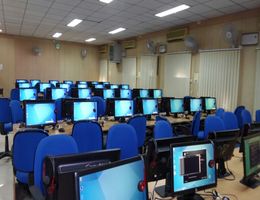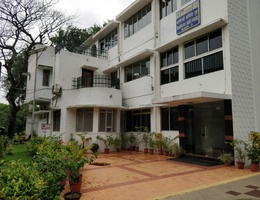Overview
Publications
Recruitment
Intranet
ICAR-Central Inland Fisheries Research Institute, Barrackpore has organised ICAR-sponsored Winter School on “Advances in Management of Inland Open-water Ecosystem Health” from 21 January to 10 February, 2020. Dr. B. C. Mal, Vice Chancellor, JIS University, Kolkata was the Chief Guest of the valedictory session.
Dr. B. P. Mohanty, Course Director and HoD, FREM division while welcoming the chief guest and guest of honour informed about the organisation of winter school. 30 lectures and 11 laboratory sessions on topics like Recent approaches in aquatic ecosystem health assessment, Emerging contaminants in open water, Heavy metal contamination in Indian rivers, Fish health management in inland open waters, Geospatial technology in inland aquatic resource management, Metagenomics, Aquatic ecosystem health for ensuring food safety and nutritional security, Impact assessment of barge movement, Nanotechnology in ecosystem health assessment, Nutrigenomics, AI, Big data and IoT in aquaculture and fisheries, Policy options in wetland fisheries management, Economic valuation of ecosystem services, etc. Four lectures were delivered by expert scientist from OUAT, ICAR-CIFA, ICAR-CIFE and Khallikote University. Participants in this winter school includes Scientists, University Faculties and Subject Matter Specialists from Krishi Vigyaan Kendras (KVKs).
Dr. B. K. Das, Director, CIFRI in his address stressed on the need of more collaboration between universities and ICAR Institutes for advance research in inland fisheries. He urged the participants to use the technology learned at this winter school at their respective institutions. He hoped that the new technology application like GIS and remote sensing, proteomics etc. will definitely help the participants in the long run.
Dr. B. C. Mal, Vice Chancellor, JIS University, Kolkata in his address said that at present the fish production of India is 13 million metric tons and the honourable finance minister of India in his budget speech raised the target of 20 million metric tons fish production by 2023-24. He told the participants to use the new technologies learned in the winter school in capacity building of farmers and students.
The Chief guest distributed the certificates to the participants. Vote of thanks was proposed by Dr. Soma Das Sarkar, Course Coordinator.
During the winter school, participants were trained through laboratory demonstration and hands-on training on modern analytical tools like 1-and 2-D electrophoresis, 1-and 2-D immunoblotting, PCR and associated techniques, microbial techniques, plankton ecology, soil and water chemistry and limnology, Geo-spatial technology and statistical tools like ecopath modelling and program with R etc.
















